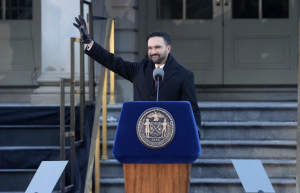There are 36 million people in the world living as slaves, an Australian-based human rights group says in a new report.
In its second slavery index released Monday, the Walk Free Foundation said it found evidence of modern-day slavery in all 167 countries it surveyed, with India having the most slaves, 14 million, out of a population of 1.2 billion, the BBC reported.
For the second time Mauritania has the most slaves as a proportion of its population, with 4 percent of the nearly 4 million that live there being exploited. The index found that most slaves in the Northwest African nation inherited their servitude.
The next country with the highest percentage of slaves is Uzbekistan, where people are forced to pick cotton to meet a quota imposed by the government, the report says, according to Reuters.
The index does not refer to slavery in the traditional sense as one human owned by another for labor. Instead it uses a broader, modern definition: "From children denied an education by being forced to work or marry early, to men unable to leave their work because of crushing debts they owe to recruitment agents, to women and girls exploited as unpaid, abused domestic workers, modern slavery has many faces," the report reads according to Reuters.
"It still exists today, in every country- modern slavery affects us all."
After India, China was named as the country with the most slaves at 3 million, followed by Pakistan, Uzbekistan and Russia, the BBC reported.
Last year's index found that 29.8 million people were enslaved. This year's increase is a reflection of better research methods and not a direct rise in global slavery, the group said.
But Walk Free also called out several countries, including Iran, Syria, Eritrea, Libya and Iraq, as having the worst responses to reducing the exploitation of its citizens, even though they have laws that criminalize some forms of slavery.
On the other hand, the index named the U.S., Switzerland, the Netherlands, Norway and Austria among other European nations as having the most effective response to modern slavery.
© 2026 HNGN, All rights reserved. Do not reproduce without permission.








